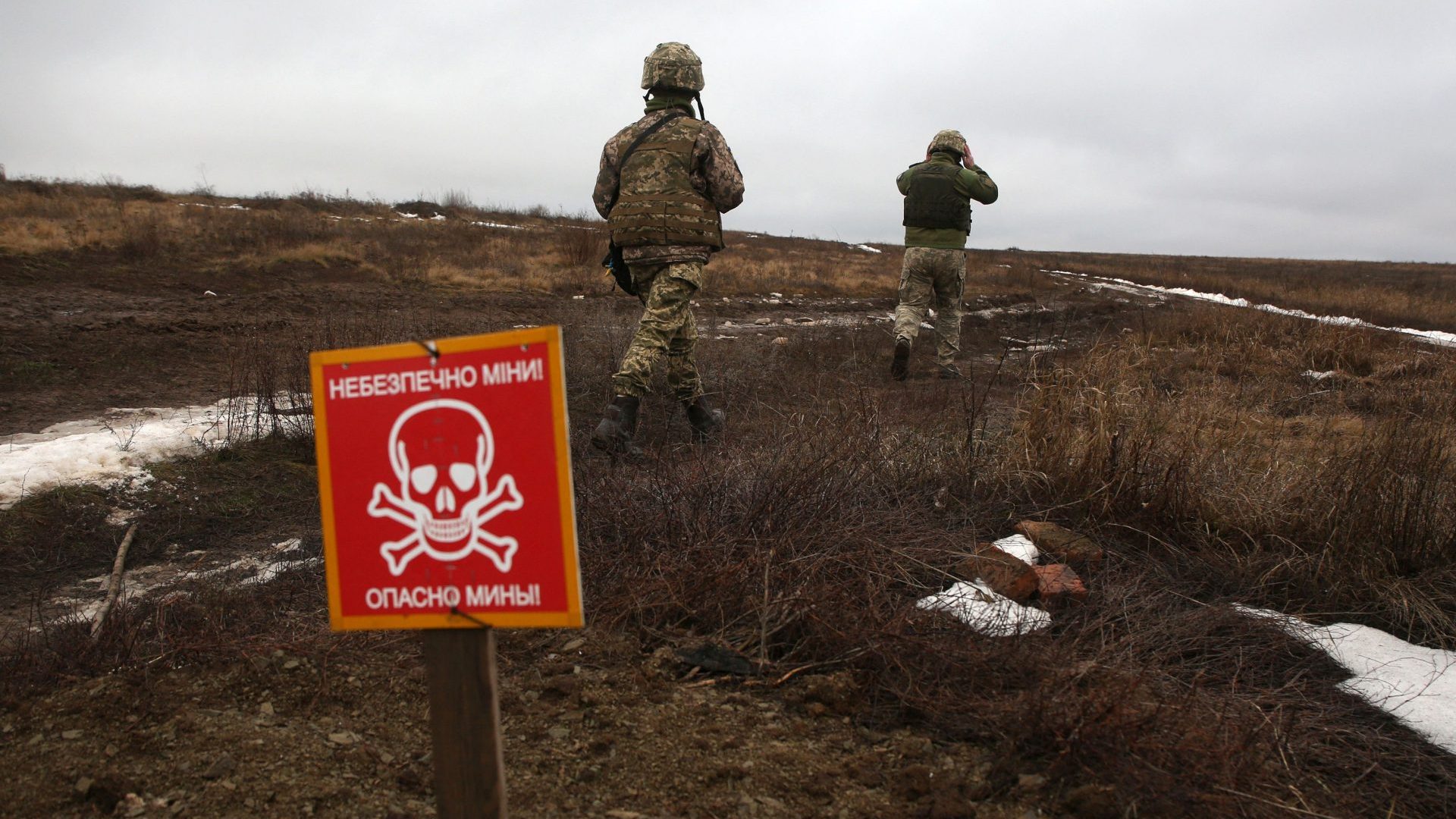As Russia launches its invasion of Ukraine, there are many questions to ask and very few answers to give. What next for Ukraine? Can Boris Johnson get his facts straight over which Russian oligarchs have actually been sanctioned and, to steal from Ed Miliband’s electoral outburst to Jeremy Paxman, is Liz Truss enough?
But also, as president Volodymyr Zelenskyy announces he and his people will “fight for their country”, how will Ukraine defend itself? Why did the country give up its nuclear weapons?
Looking back three decades ago, a newly independent Ukraine was, briefly, the third most powerful nuclear country in the world after the United States and Russia. A far cry from today’s reality.
Nearly 40 metres below the black earth of Ukrainian farmland, small groups of men were once entrusted with the task of keeping constant vigil before command consoles with the grey buttons that could launch nuclear weapons towards enemies of the Soviet Union.
Then the Iron Curtain fell.
After the collapse of the Soviet Union in 1991, thousands of nuclear arms were left on Ukrainian soil by Moscow, including roughly 1,900 strategic nuclear warheads and thousands of tactical nuclear weapons. But, in the years that followed after countless rounds of negotiation, Ukraine made the decision to denuclearise in exchange for assurances that its border would remain inviolate. The newly independent country was leaned on heavily by both Russia and the United States, the former wanted to eliminate a potential security threat on its borders and the latter wanted rid of concern over the proliferation of renegade post-Soviet states.
This guarantee for Ukraine’s security by the US, UK and Russia was formalised in the 1994 agreement known as the Budapest Memorandum. With Russia now acting in stark contrast to this agreement, those who once had their hands on a nuclear arsenal are now questioning the wisdom of this decision.
Nikolay Filatov, the former commander of the 46th Rocket Division, which operated 86 intercontinental ballistic missile silos in the Pervomais’k area in central Ukraine, told The Globe and Mail that this was “a huge mistake”. “Today, our people are dying in eastern Ukraine because of Russian troops, all because we unthinkingly gave up nuclear weapons,” he added.
Russia insists the Budapest Memorandum was first violated by the US and Ukraine, after what the Kremlin calls a “coup d’état” following protests in Kyiv in 2014. But, for Ukraine, Russian incursions amount to a complete violation of the pledges made decades ago in 1994.
There’s then the question of regret. It would have cost Ukraine, both economically, and politically, to hold on to these weapons after the fall of the Soviet Union but does the country wish they’d acted differently?
Mariana Budjeryn of Harvard University told NPR’s All Things Considered that on the streets more simplistic conversations are taking place. The narrative is “We had the world’s third-largest nuclear arsenal, we gave it up for this signed piece of paper, and look what happened.”
However, while it was clear that Ukrainians knew they weren’t getting “the exactly legally binding, really robust security guarantees they sought” she is of the opinion the country made the right decision at the time. Ukraine was told that the US and Western powers take their commitments seriously. It was a document signed at the highest level by the heads of state and therefore there was the implication that Ukraine would not be left to stand alone and face a threat should it come under one.
She also continued to say that there is no question on whether Russia respected the Memorandum. “They glibly violated it,” she said. She explained there is a mechanism for consultations for memorandums such as these and it was mobilised for the first time on March 4, 2014.
A meeting of the signatories was called by Ukraine and held in Paris. Sergey Lavrov, Russia’s foreign minister, who was in Paris at the time did not show up. Russia argues it was signed by another government, but Budjeryn states that this “does not stand to any international legal kind of criteria” as agreements are signed with a country, not the government at the time.
It is difficult to decipher if Ukraine could have foreseen this aggression by Russia, as hindsight is a useful tool. As the country moves to defend itself against a long-standing and nuclear-armed enemy, civilians answer their president’s call to arms, clearing out shops of AK-47s. All the while, a Ukrainian Lieutenant Colonel Buzzfeed’s Christopher Miller came to know during his time on the frontline in Avdiivka sent him a message of a very different tone. It read: “Under fire. This is the end…”.










